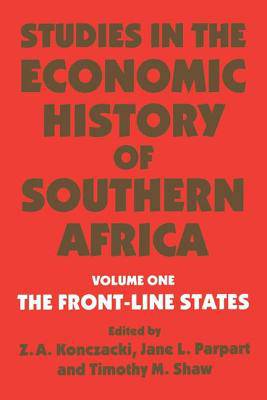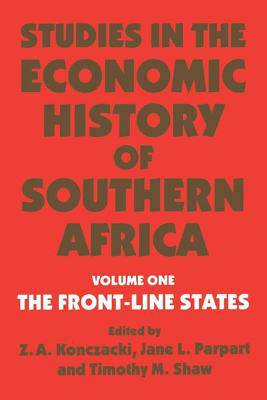
- Afhalen na 1 uur in een winkel met voorraad
- Gratis thuislevering in België vanaf € 30
- Ruim aanbod met 7 miljoen producten
- Afhalen na 1 uur in een winkel met voorraad
- Gratis thuislevering in België vanaf € 30
- Ruim aanbod met 7 miljoen producten
Zoeken
Studies in the Economic History of Southern Africa
Volume 1: The Front Line States
Z a Konczacki, Jane L Parpart, Timothy M Shaw
€ 41,45
+ 82 punten
Uitvoering
Omschrijving
First Published in 1990. Both the history and the historiography of Southern Africa are in flux as the 1990s open. This collection of original studies by a new generation of Southern African scholars seeks to go beyond established analyses and debates. The current watershed challenges old and new orthodoxies alike. This collection treats the economic history of six states-Angola, Malawi, Mozambique, Namibia, Zambia and Zimbabwe - and several sectors in the prevailing state capitalist political economies - agriculture and industry, land and labour. Whilst the book opens with a chapter on the regional iron age, its focus is mainly contemporary, yet recognising the continuing impacts of regional and global history. The authors adopt a variety of perspectives, reflective of their cases and contents, but the balance is towards critical and radical scholarship, reflecting Southern African realities as well as the contributors' generation. Common to the economic historians who have contributed to this volume is a realisation of the fading boundary between social and cultural history and their own disciplines. Increasingly perceptible also is the influence of political forces on the economic life of the region, whether it is the dependence of the Southern African 'periphery' on the yet more industrialised Western 'centre', or the relationship between the narrower 'periphery' of the Front-Line States vis-a-vis the 'centre' as represented by the power of South Africa. This theme of politics having its roots deeply embedded in the rich soil of the controversial socio-economic issues appears in a widened perspective in the companion collection of studies on the remaining countries of the region: South Africa, Lesotho and Swaziland.
Specificaties
Betrokkenen
- Auteur(s):
- Uitgeverij:
Inhoud
- Aantal bladzijden:
- 244
- Taal:
- Engels
- Reeks:
- Reeksnummer:
- nr. 1
Eigenschappen
- Productcode (EAN):
- 9780714640716
- Verschijningsdatum:
- 1/03/1990
- Uitvoering:
- Paperback
- Formaat:
- Trade paperback (VS)
- Afmetingen:
- 153 mm x 215 mm
- Gewicht:
- 358 g

Alleen bij Standaard Boekhandel
+ 82 punten op je klantenkaart van Standaard Boekhandel
Beoordelingen
We publiceren alleen reviews die voldoen aan de voorwaarden voor reviews. Bekijk onze voorwaarden voor reviews.










